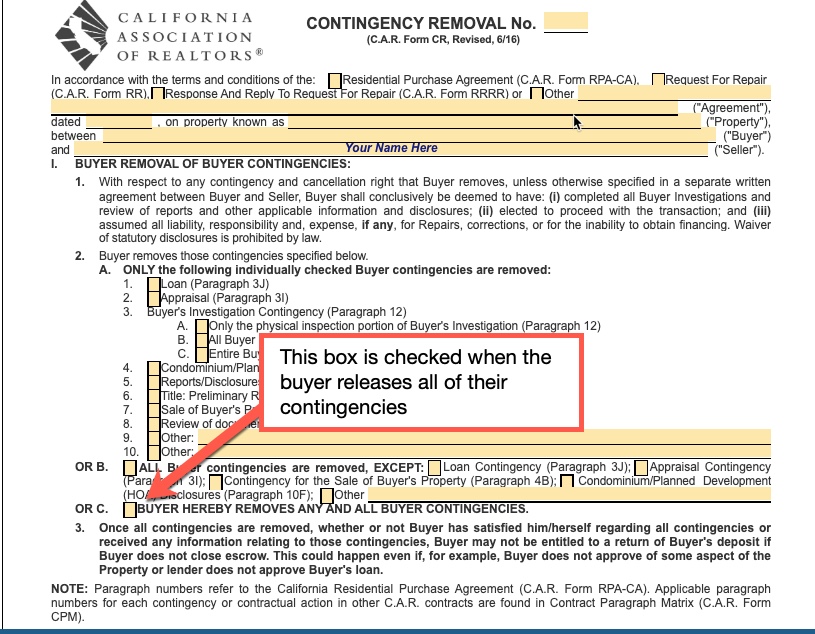Table Of Content

According to data from the January 2022 REALTORS® Confidence Index Survey, 23% of all purchase contracts are delayed, and 7% are terminated entirely. Those figures include both pending and contingent listings, though most issues that delay or end a contract are thanks to contingencies. For a home that is listed as pending, there is an agreement in place, all contingencies have been addressed, and the deal is on the cusp of being completed. At this stage, the contract has been executed due to its required conditions being met. It is still possible for a deal in this situation to fall through, usually due to a home inspection or financing issues.

Inspection contingency
With a short sale, the seller owes more on the home than it’s worth (that is, they’re “coming up short”). These are complex transactions that require approval from the seller’s lender, so they can take months or even years to close. It’s unlikely that a short sale seller will be accepting backup offers. With pending status, a seller typically won’t take further offers on the home because the deal is nearly sealed.
Finance Contingency
Receive a free, remarkably accurate market valuation of your home by completing the Quadwalls.com Interactive Home Value Experience. Also, we post the real estate commission fee we charge on our website. Our fees for our full-feature home selling services are amongst the lowest in the industry.
Are contingencies common in real estate?
The contingency communicates that if the clause isn’t met, the buyer has the right to back out of the purchase. Quadwalls.com is a real estate website founded in Valparaiso, IN dedicated to helping home buyers and sellers make better decisions when buying and selling real estate. We do this by giving clear, honest information to our clients based on what we have learned by completing hundreds of home purchases and sales. A contingent on inspection contingency means the buyer will purchase the home so long as inspection of the property does not reveal any serious defects. Buyers often hire a home inspector to inspect the property to see if the seller failed to disclose any defects. The contingency is removed once the inspection is completed and either no defects are revealed or the seller agrees to repair items requested by the buyer.
The accepted offer is a short sale and must be approved by additional lenders or banks outside of the buyer or seller’s control, which may take a long period of time to process. When a property is marked as pending, an offer has been accepted by the seller and all contingencies have been satisfactorily addressed or waived. A home will remain in the pending state until all legal work has been processed. A contingent status with a no kick-out clause means that an offer has been accepted and the seller cannot accept another buyer’s offer. A contingent status with a kick-out clause lets a seller continue to market their home in the event that they receive an offer with contingencies.

Put simply, an accepted offer that has contingencies begins as contingent. An offer that is pending is much closer to closing than one that is contingent, so it’s usually not worth looking at pending listings. This means that the seller has accepted an offer with contingencies, but wants to continue showing the home to other potential buyers in case the offer falls through.
Buying and Selling a Home at the Same Time? These Programs Can Help - The Mortgage Reports
Buying and Selling a Home at the Same Time? These Programs Can Help.
Posted: Tue, 08 Aug 2023 07:00:00 GMT [source]
What does pending mean in real estate?
Waiving contingencies can be a good idea in a seller’s market where there are more buyers than there are homes available. By waiving contingencies, you’ll make your offer stand out from others that the seller receives and may increase the likelihood of the seller accepting your offer. Whether you’re a buyer or a seller, you’ll want to know whether a contingent offer will raise the likelihood of the deal falling through. The answer is that typically it doesn’t add much risk of a failed deal. According to a recent survey conducted by the National Association of REALTORS®, only 5% of all offers fell through.
If you know whether a house is pending or under contract, you can form a plan for making a bid yourself. Our partners cannot pay us to guarantee favorable reviews of their products or services. Many offers are contingent upon a buyer being able to secure insurance for a home.
Contingent Vs. Pending Home Meaning In Real Estate - Apartment Therapy
Contingent Vs. Pending Home Meaning In Real Estate.
Posted: Thu, 05 Dec 2019 08:00:00 GMT [source]
If they arrive at a number significantly lower than what the seller has listed the home for, the buyer can walk or negotiate the price down using the power of the appraisal contingency. The buyer chooses what contingencies, or specific terms, they want to include in the offer and may use the help of a real estate professional. A real estate professional, whether a lawyer or realtor, can help you design and execute the overall offer with the contingencies in place. Using an experienced real estate professional is helpful because they’ll likely have more knowledge of the housing market — unless of course — you’re both a buyer and a real estate professional. Typically, a house for sale with pending status is an indication all or nearly all of the contingencies have been resolved.
If your documented financial information changes in the time between prequalification and approval, your loan may fall through and affect your financial ability to make the purchase. Throughout the U.S. there are many multiple listing services (MLS) managed by associations and cooperatives. Due to this, each MLS has its own way of doing things including dictating at what stage of a transaction a home’s status is changed from active to contingent to pending to sold.
One way to ensure smooth sailing on a contingent offer referencing an inspection is to line up an inspector before making the offer. The Hubbard Clause, which many current homeowners have to take advantage of when they try to sell while buying, is another common contingency. Connect with a top agent near you to get an expert opinion on how much your house will sell for, what to fix before listing, and the latest local housing market trends. It’s crucial for buyers to use an insurance contingency to give themselves an out if they learn that it will cost far more than expected to insure the home they’ve made an offer on. Cathie Ericson writes about personal finance, real estate, small business, education, retail/ecommerce and other topics for a host of brands and websites. News & World Report, Forbes, Business Insider, The Oregonian, Industry Dive, Boston Globe, CNBC, MSN.com, Realtor.com and Yahoo Finance, among many others.
This status lets buyers know you’ve accepted an offer with contingencies. Your home is still an active listing, so you continue showing your home and collecting offers from other prospective buyers. With this active status, days on market will continue to accrue, as well. The seller has accepted an offer, but the probate court must approve the sale before it can close.
The home’s title reveals who owns the house and who has owned it all along the way. Get more from a personalized relationship offering no everyday banking fees, priority service from a dedicated team and special perks and benefits. Connect with a Chase Private Client Banker at your nearest Chase branch to learn about eligibility requirements and all available benefits. Make purchases with your debit card, and bank from almost anywhere by phone, tablet or computer and more than 15,000 ATMs and more than 4,700 branches. This post explains how to tell the difference between contingent vs. pending vs. under contract and outline your options with regard to making an offer on a home of your own.
Ultimately, it depends on who you are in the real estate transaction. Buyers still shopping for homes may be pleased to see “contingent” on their dream home listing because it means the contract can still fall through, though it’s unlikely. Sellers can typically accept other offers at any point prior to both the buyer and seller signing the purchase agreement, though laws vary state by state. Adding contingencies can be risky, especially in a “hot” market where lots of home buying activity occurs.
Only 4% of real estate contracts in the spring of 2023 were terminated. So if you’re buying a house and see a listing that’s contingent, it’s likely going to be fully off the market soon. If you receive a contingent offer as a seller, statistically speaking, that deal is likely to still close. In general, contingent means “depending on certain circumstances.” In the world of real estate transactions, it means the sale depends on the contract’s contingencies being met.

No comments:
Post a Comment